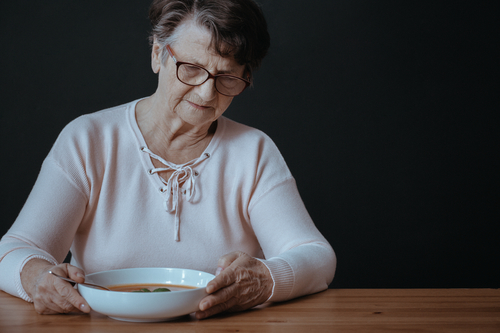
When we think of eating disorders, we usually think of younger people. But this disorder is not exclusive to younger people. Eating disorders affect the elderly too, though it’s not often detected.
Do Eating Disorders Affect the Elderly?
Sometimes people think that with age comes the freedom from self image. That’s just not the case. That kind of pressure for having a certain type of body has been around for a long time.
Eating disorders include anorexia nervosa, bulimia nervosa, and binge eating disorder. They are psychiatric illnesses marked by extreme feelings and behaviors around weight and food. It can have life threatening physical and mental consequences.
As mentioned before, they often appear during adolescence, but that doesn’t mean seniors are safe from it. A survey found that 13% of women age 50 and older experienced eating disorder symptoms over the past 5 years.
More than 70% were trying to lose weight, 62% felt their weight or shape was negatively affecting their lives.
Like body changes during adolescence, a lot of common changes that come with getting older can spike eating disorders symptoms. Changes like increased caregiving responsibilities, retirement, deaths, and moving are some of the most common.
All these changes causes a need for control that eating disorders seem like they provide.
Why Eating Disorders Are Hard to Detect
With seniors, eating disorders are hard to notice because they could be related to other age related conditions. Things like taste bud decline, dementia, and lack of access to food can cause eating problems without being part of an eating disorder.
Also, few people who work with older adults have the training or awareness to think about eating disorders affecting the elderly. They don’t think that this could cause weakness, dizziness, or dehydration.
It’s always assumed that it’s part of getting older.
Treating Eating Disorders in the Elderly
It’s critical to find eating disorders in older people because treating them is a lot different than treating teens. It’s also a lot different than treating age related eating problems. Though the consequences are the same: weak immune system, poor recovery from wounds, anxiety, cognitive impairment, weakened muscles and bones, and increasing fall risk.
Read more here.


